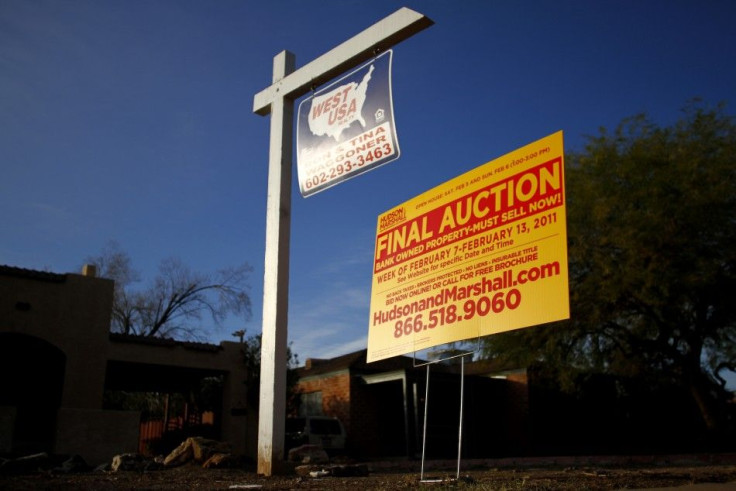Foreclosure Settlement: Is it Too Little? Top Negotiator Defends Deal

The long-awaited $26 billion nationwide settlement on banks' abusive foreclosure practices was announced to fanfare Thursday.
The government officials who negotiated the settlement -- the Department of Justice, Housing and Urban Development Department and nearly every attorney general across the nation, led by Iowa's Tom Miller - - touted the historic accord as a way to get struggling homeowners immediate relief and to fix banks' mortgage servicing operations.
The settlement covers banks' abusive foreclosure practices, like robo-signing documents, taking people's homes in the middle of loan modifications and missing deadlines.
But the size of $26 billion deal affecting two million homeowners in 49 states -- Oklahoma's attorney general declined to join his colleagues -- has been criticized as too small considering the damage caused by improper foreclosures and the impact on investors, including union pension funds.
The negotiators, nonetheless, say the settlement structure can lead to larger homeowner relief beyond the $26 billion figure.
"The misinterpretation is that this is all that is available to homeowners," said HUD Secretary Shaun Donovan.
Settling for Too Little?
The amount of homeowner relief depends on whether more mortgage servicers join the settlement. Currently, the banks that agreed to the deal -- Bank of America, JPMorgan Chase, Citigroup, Wells Fargo and Ally Financial -- are the nation's largest servicers.
They will pay at least $17 billion for direct homeowner relief, such as principal reduction. Another $3 billion will go toward refinancing mortgages on homeowners who are underwater, meaning they owe more on the loan than their property is worth. States will get the lion's share of a $5 billion portion of the settlement, with the federal government getting $750 million.
Officials said the servicers are expected to pay an estimated $32 billion. Even more relief will be available if every one of the nation's 14 mortgage servicers jumps on board.
Miller, Iowa's long-time attorney general, said the deal's structure will allow for larger reduction on loans' principal. Previous efforts from Washington to cut down the size of mortgage loans have been relatively unsuccessful in helping the millions of homeowners delinquent or struggling to make payments.
"This agreement is the only thing out there that has any kind of a chance to get to principal reduction," Miller said. "For homeowners who want principal reduction, this is the vehicle."
Other kinds of homeowner relief include a $1.5 billion cut of the settlement for direct cash payments to those who were on the receiving end of improper foreclosure practices. Victims who lost their homes between January 2008 and December 2011 can expect checks ranging from $1,500 to $2,000.
Chump change for the size of a delinquent mortgage loan, which are hundreds of thousands of dollars. But Miller said the check amounts to some kind of a financial recovery. He also stressed that the deal also includes reforms to mortgage servicing operations so other homeowners can avoid foreclosure abuses.
"This goes to people who could not recover in any way. If they sued, they could not recover," Miller said. "They're not going to tell us we settled too cheap."
Burning Investors?
Another criticism for the deal involved the investors who bought into pools of subprime mortgages peddled as attractive opportunities. These investor-owned loans can be picked for principal reduction.
Miller said a reduction in a mortgage's principal will help homeowners on the brink of foreclosure make their payments, a boon for investors that would otherwise take a financial hit when the loan went delinquent.
"There are some homeowners that can't make the full payment but they can make part of it. The part that they make is more than the investor would get under foreclosure," he said. "The investor gets more money by the modification, not less money. That's what principal reduction is about."
--
© Copyright IBTimes 2024. All rights reserved.











